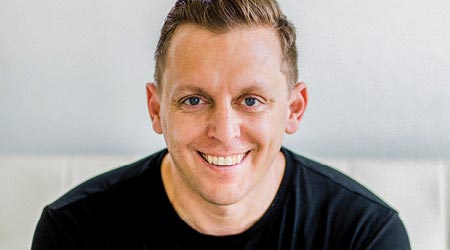
I had planned to write an entirely different column, but just before I submitted it, I was presented with some unsettling information. Last night, a colleague forwarded me an article from the September 18, 2020, online issue of the New York Times titled "Housekeepers Face a Disaster Generations in the Making." Note the date, right in the middle of International Housekeepers Week.
The story painted a grim portrait of a harsh reality that we in the professional custodial operations community know all too well. As housekeepers are furloughed, they are being left behind economically. In a profession that has historically struggled to ensure housekeepers know how to clean, when to clean, what to clean and why we clean — we're now staring at something far worse: making sure we don't leave people behind.
This has been a recurring theme for major news outlets across the country. Time magazine ran a similar story earlier this summer — and this is the second piece from the New York Times in the past six months.
While most of these stories are central to residential housekeeping, they still resonate. Residential housekeepers are a critical demographic of our community — what affects them affects us all. Reports like these leave me with a few burning questions: Why don't professional cleaners know these things? Moreover, where do they go to learn them? And most importantly, why don't we stress the importance of cleaning — and emphasize this in our households, in our workspaces and all indoor environments?
Humans spend 90 percent of their time indoors. We build environments for protection from the elements, to improve our chances of survival. Yet we forgo training and educational needs of our staff who protect us from threats that live among us indoors. In my mind, living and working in clean spaces is preventative healthcare.
I used to believe that it was by nefarious design. It was a trick deployed by the all-powerful industry money gods to nickel and dime us using conflicting sciences, vague processes and massive product lines. But the more immersed in the industry I become — and the more vantage points I've been fortunate enough to see — the more I realize that this has happened, more than anything else, because of chaos. While chaos can be manipulated for financial gain, I don't think that's massively at play.
Let's take a moment to acknowledge a fact that many tiptoe around in the industry. Our cleaning workforce is by-and-large made up of multilingual, sometimes disabled, aging, rehabilitated and even multi-generational humans. Many of our workers are getting their first shot at a chance to become citizens of the United States, and cleaning is their introduction to the socio-economic food chain.
We owe it to them, as leaders, to pave a better path than the one that was laid out before us when we were starting. The only way to accomplish this is to focus on teaching fundamentals of what it means to clean. It begins with us, the professionals, teaching the rest of the world what they need to know and why cleaning is a process, not merely a product. It is information that improves lives.
We must do better. As a profession, as an industry and as individuals. A story like this is one too many. Many died on this hill before: my father, my friend Jim Ginnaty, many friends and people I know only by legend. We have to take up the battle. We have to do better — if not for us, then for the future. It is the hill that I will die upon.
Ben Walker is COO at ManageMen, Inc., a leading cleaning industry consultancy specializing in training, transitions, auditing and educational materials. In addition to his consulting work, Walker is the author of ISSA's best-selling book: 612 Cleaning Times and Tasks. He can be reached at ben@managemen.com.

 Celebrating BSCAI's 60th Anniversary eBook
Celebrating BSCAI's 60th Anniversary eBook The Down and Dirty on Cleaning in Virus Season
The Down and Dirty on Cleaning in Virus Season How Surfactant Use is Expanding in Commercial Cleaning
How Surfactant Use is Expanding in Commercial Cleaning